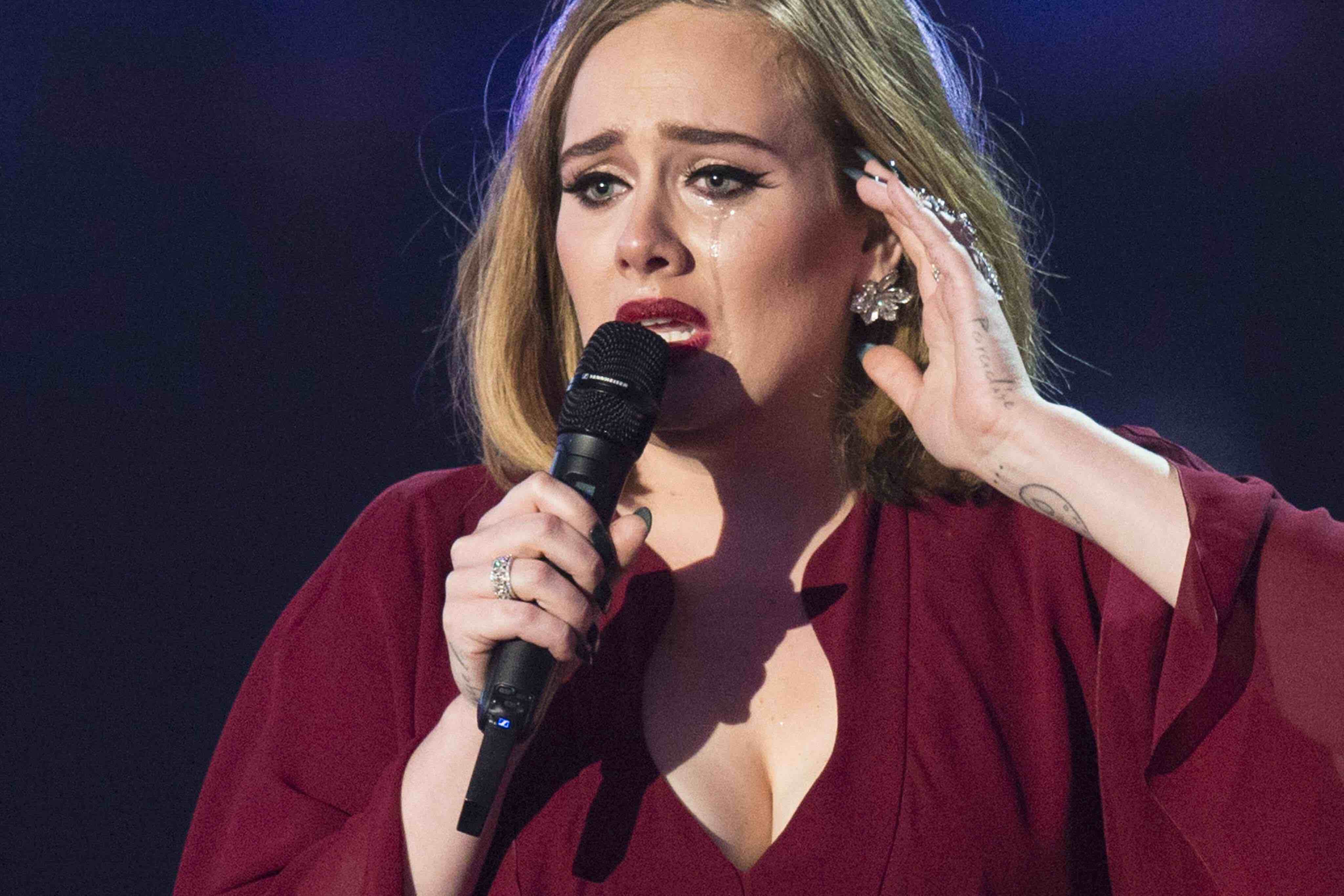‘Tears are not enough,’ ABC once sang defiantly – but these days, they’re more than enough for handsomely rewarded celebrities to assure us that they suffer like the rest of us, so please don’t hate them. Watching the BBC Breakfast presenter Sally Nugent – a 51-year-old woman – boo-hooing recently after watching a clip of some cute guide dogs, I sincerely wished that Lord Reith might rise from his grave and bundle the heaving hack under a cold shower. I’m just so bored by celebrity tears.
Or take Frankie Bridge, the ex-Saturdays singer, an attractive young woman with an adoring husband and adorable children, who like her footballer spouse Wayne has a net worth of around £9 million. What’s an appropriate way to send your fans – who may be wondering whether they can afford to go wild and turn the heating on – season’s greetings? Why, post a photograph of yourself on Instagram crying (beautifully) after a therapy session, reminding we heartless revellers that ‘Christmas isn’t all parties and presents’, before another post showcasing your fantastic abs as you work out with your hot husband.
Across on Netflix, Meghan Markle could recently be seen piping her eye over the pitifulness of having a $100 million reality-show deal (‘The Carcrashians’) and 16 bathrooms. Was I the only person who, rather than taking sides in the bridesmaid tights debate, found the who-made-who-cry competition a rather pathetic way for two women in their forties to carry on, even though I adore Kate and deplore Meghan? But even Duchess Dolorosa could learn a few tricks from Adele, surely the Serena Williams of snivelling; googling ‘Adele crying’ shows 9,860,000 results, most recently weeping when England lost at football, bawling over a fan celebrating a divorce and grizzling over the postponement of her Vegas residency – now a sodden triumph.
Blubbering used to be confined to toddlers and Oscar-winners but now everybody’s doing it
Of all the emotions women may now show openly after suppressing them for so long – anger, ambition, disdain – there’s always some ninny who prefers to take the coward’s way out and weaponise the waterworks. It’s ironic that the rise of crying has paralleled the increasing use of the phrase ‘Strong Woman’ to describe every female, no matter how weak – but a Strong Woman doesn’t cry at the drop of a hanky. Though #MeToo was long overdue where actual sexual harassment is concerned, it was bracing to hear the 76-year-old Joanna Lumley state briskly: ‘If someone whistled at you in the street, it didn’t matter; if someone was groping, we slapped their hands. We were quite tough and looked after ourselves… the new fashion is to be a victim… it’s pathetic.’
And in the kingdom of the victim, the wet-eyed woman is queen. Blubbering used to be confined to toddlers and Oscar-winners but now everybody’s doing it – and the number of ululating male celebrities is even worse. Famous males are more likely to cry if they’re also violent, especially towards women, from Paul Gascoigne to Johnny Depp, taking in Mike Tyson and R. Kelly; I coined the term ‘Cry-Bully’ in The Spectator to describe this type – ‘a hideous hybrid of victim and victor, weeper and walloper’. But sometimes they do it to get public sympathy after blotting their copybooks, which will now be even soggier with their tears – see Will Smith and Matt Hancock.
Sometimes they’re just irritating in their orbital incontinence – Jamie Oliver, David Beckham, Will Mellor, Rylan Clark and Sam ‘The Sniff’ Smith. We’re encouraged to think that men showing their feelings is an unqualified Good Thing – but really? Considering that in the UK two women a week are killed by partners and exes, I’d say that we could use a little less expression of male emotion and a bit more of what used to be called ‘bottling it up’.
It’s a generational thing to some extent; out most famous non-cryer was the Queen, who had the palace inform the press that she did not sob when the royal yacht Britannia went up the Swanee, but rather that it was a breezy day and she had got something in her eye.
Footballers, who once only expressed emotion by snogging their teammates after the scoring of a cheeky goal, are now whimpering all the way to the bank, stopping only for a quick kneel to remind us that they’re really humble. The young celebrities on Strictly cry routinely on camera, but the older ones tend to wait till they’re back in their dressing room. Most television talent show contestants are young, and make the most of the three golden opportunities to weep buckets while on their Journey, these being a) to accompany the back-story about the death of their nan who’d have been so proud, b) when begging to be accepted after rejection and, finally, c) unable to believe their luck when selected.
Social media is infested with what I call ‘tear-leaders’ – large groups of people getting together to competitively mourn dead celebrities. When I saw someone post on Facebook that ‘the slaughter of a generation’ was taking place because David Bowie and Ronnie Corbett shuffled off this mortal coil in the same year, I couldn’t resist posting a status update saying how much I miss Pinky and Perky, whose creator did indeed pass away in the same year: ‘They may have lived like pigs – but more importantly, they gave us the freedom to be Us. Farewell, then, porky puppet pair – we shall not see your like again. There are two new sausage-shaped stars in Heaven now.’
As for myself, I used to be the worst sort of weaponising weeper – whenever I didn’t get my own way, I turned on the waterworks until I did. It usually worked – but the hangover of shame made the game not worth the candle and as I’ve grown older I’ve come to admire stoicism. If people cry for others, I suppose that’s generally a good thing – though if it doesn’t thereafter translate to practical help, as such grandstanding gestures often don’t, then it’s pretty useless. As life gets harder for most of us, I imagine that our patience with over-privileged pulers will decrease – and then (as our sorely tested mum said as she smacked our legs after we’d been grizzling all around the 1970s supermarket) they really will have something to cry about.







Comments